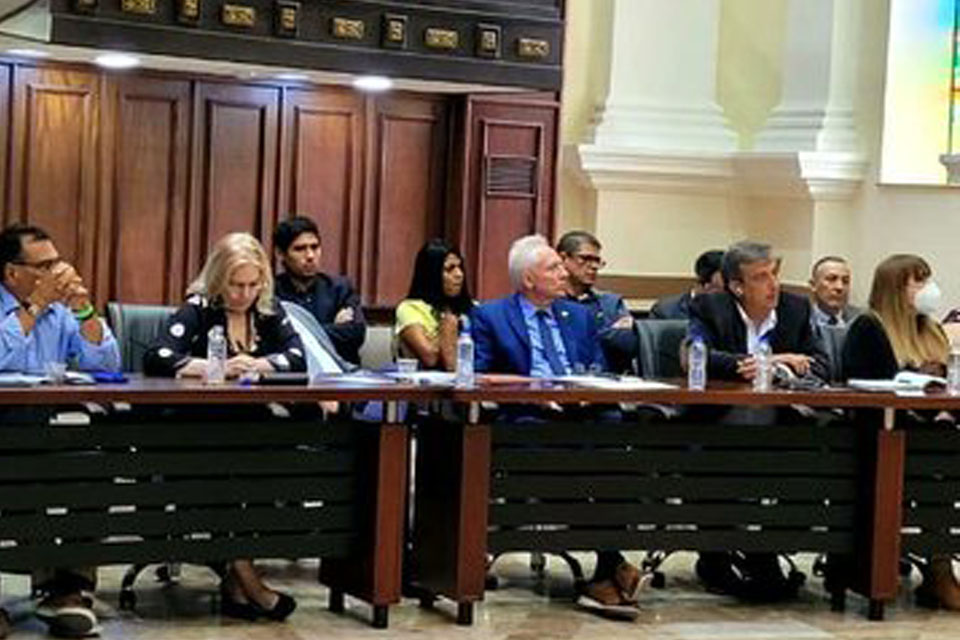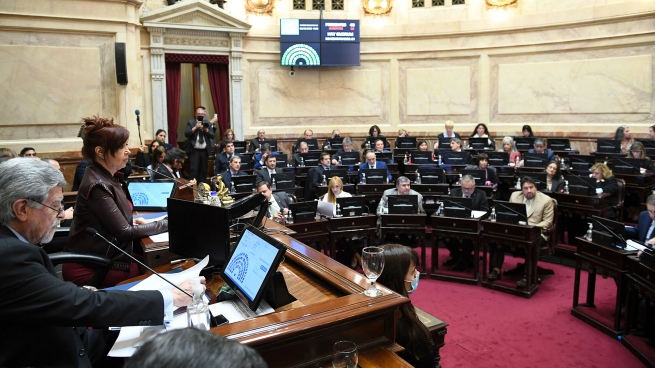Among the proposals presented by Conindustria, the decrease in the rate of the municipal tax on the economic activity of industry, commerce and services stands out, which is currently at 3%.
Representatives of Conindustria delivered to the 2020 National Assembly a document with the observations on the organic bill for the coordination and harmonization of the tax powers of the states and municipalities. This Wednesday, September 7, they met with deputies from the Commission of Economy, Finance and National Development, which initiated consultations on this new legal instrument.
Luigi Pisella, president of Conindustria, emphasized the expectations that the sector has with this new law, and stressed that they expect it to bring order and put an end to the “exorbitant” collection of taxes, among which are several created by regional governments. On the other hand, he reminded parliamentarians that industrialists face unfair competition due to the importation of a large number of items of finished products that are exempt from paying taxes.
“It is necessary to regulate not only state and municipal taxes, but also national ones, since the high tax burden pushes companies into informality, while those that do pay suffer from enormous taxation and are at risk,” said.
Among the proposals presented by the business association, is that the tax rate be reduced to 2% of the municipal tax on the economic activity of industry, commerce and services, which is currently at 3%.
“We must consider that a tax that is based on gross income is affecting the direct generation of resources with which merchandise is purchased, wages and salaries are paid, and profit is generated to make the necessary investments to continue working and generating value in the country, based on this aspect, 3% would be considered a considerably high amount, “says the document delivered by the union.
The tax harmonization bill for the states and municipalities states in its explanatory memorandum that it will establish the parameters, limitations, types of taxes and rates that allow guaranteeing the coordination of the tax powers that correspond to the states and municipalities, in accordance with the provisions of the Constitution.
Among the 52 articles, distributed in seven chapters, a transitory provision, two derogatory provisions and a final provision, it is established that the regional governments must consult the Superior Council for Tax Harmonization about any change in the taxes they collect, whether it is setting new rates or aliquots and creation of taxes.
This body will be made up of the Minister responsible for economics and finance, who will preside over it; the Seniat, three governors and three mayors.
In that sense, Conindustry requests the inclusion in this Superior Council of three representatives of the private sector, in order that they can “contribute knowledge, experiences and situations of the business sector that contribute to the achievement of measures and positive results in this bill, its implementation and monitoring”.
Regarding the tax rates for comprehensive solid waste management, the union proposes to take into account the amount of waste that is generated by the nature of the economic activity, and not by the size of the business premises as it currently is; this with the objective of “an adequate contribution for those who generate the most solid waste”.
Pisella reiterated that the high tax pressure in Venezuela, considered one of the highest in the world, generates an increase in the prices of goods and services, which in the end, who is the most affected is the consumer.
*Also read: Bill does not order or eliminate the municipal, state and national “tax maelstrom”
At the meeting at the Federal Legislative Palace, Jesús Faría, president of the Finance Commission, reiterated that the Executive is moving towards a tax reform that creates a “viable, fair and socialist” national system. He stressed that the administration of Nicolás Maduro “is making efforts to normalize the entire tax issue,” he said according to statements published by the portal Cocuyo effect.
He said that the AN of 2020 is willing to submit the recommendations to the Executive, work on the national tariff issue and how the national industry can benefit. He expressed that there is a coincidence in giving “the greatest protection” to the Creole industry so that it can return to normal “after the impact of the blockade” and strengthen itself in the face of international competition.
The former Minister of Foreign Trade warned the Conindustria representative that although the Executive is open to “correcting” everything that affects the private sector, it is heading towards a “mixed economy” in which the private sector has its role but the State also.
He also hoped that this type of dialogue would be maintained, as well as the “peaceful and democratic coexistence” between the private sector and Miraflores. “We hope that path will not be broken in the future,” he added.
This public consultation was also attended by representatives of Fedecamaras and Consecomercio.
Post Views:
139








